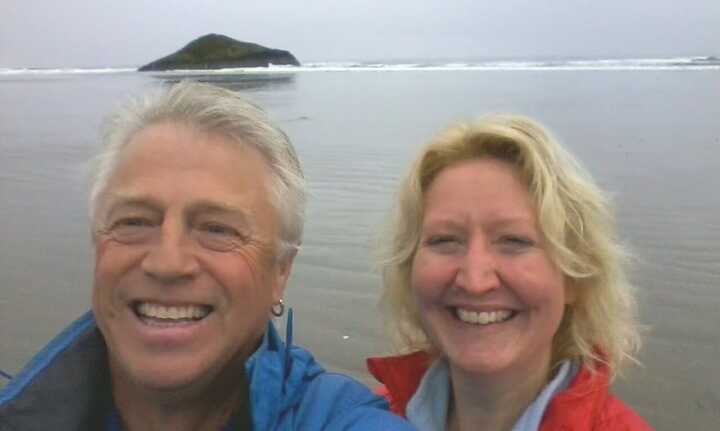
Sarah Packwood and Brett Clibbery’s life raft washed up on a remote Canadian island after they were reported missing on 18 June
The bodies of a couple who were on a sailing trip across the Atlantic Ocean have been found on a life raft that washed up on a remote Canadian island almost six weeks after they were last seen.
Briton Sarah Packwood, 54, and her Canadian husband, Brett Clibbery, 70, are thought to have abandoned their yacht and died before washing up on Sable Island – known as the “graveyard of the Atlantic” – east of Nova Scotia in Canada on 12 July.
The couple were reported missing on 18 June after leaving Nova Scotia in their 13 metre (42ft) eco-friendly yacht, Theros, on 11 June. On 13 June, Clibbery’s GPS device pinged a final signal about 40 miles south-west of Sable Island.
They were on the way to the Azores, a collection of islands belonging to Portugal in the middle of the Atlantic, with the 2,050-mile (3,228 km) trip planned to take 21 days.
In a post on Facebook, Clibbery’s son James confirmed the pair had died, saying the last few days had been “very hard”. He said an investigation was under way and that he was awaiting a DNA test on the bodies.
He said: “They were amazing people, and there isn’t anything that will fill the hole that has been left by their so far unexplained passing.”
It remains unknown what happened, but police have said a “multi-agency” investigation is under way. One theory investigators are exploring is that the yacht was struck by a passing cargo ship that did not notice the collision, according to Canadian news website Saltwire.
“The sailboat crew were either unable to avoid collision” or they could have been down below with Theros on automatic pilot, an anonymous source told Saltwire. The Canadian Coast Guard and military aircraft are not believed to have spotted wreckage or any sign of the boat.
More than 350 shipwrecks have been recorded on Sable Island – which is uninhabited apart from staff in government-run rescue stations – since 1583, according to the Maritime Museum of the Atlantic, which says the island is near a major shipping route, lies on a common storm path and is surrounded by “tricky” currents.
The couple met by chance at a bus stop in London in 2015. Clibbery was in London preparing to donate a kidney to his sister. Their story was featured in a 2020 “How We Met” article in the Guardian, which described how they bonded over their shared passion for travel.
When they met, Clibbery told Packwood about his boat, Theros, and his passion for sailing. She said: “It was something I had always wanted to do, but never had time for.”
She added: “He took me on my first ever yacht trip and I loved it. Brett proposed to me in the main cabin of the boat.” The couple then married on Theros in 2016 and Packwood moved to Canada in 2018, purchasing land with Clibbery on Salt Spring Island.
In a video posted to their YouTube channel, Theros Adventures, on 12 April the pair named the trip the Green Odyssey, and explained how it would rely on sails, solar panels, batteries and an electric engine repurposed from a car.
Clibbery said: “We’re doing everything we can to show that you can travel without burning fossil fuels.”
Packwood added: “It’s probably the biggest adventure of our lives so far.”
The couple’s previous sailing adventures have included sailing down the west coast of Canada and the US, before crossing the Panama canal towards the Caribbean and coming all the way back to Nova Scotia. In June 2019, they embarked on a sailing trip across the Atlantic that was curtailed by severe storms.
Packwood, originally from Warwickshire, worked in Rwanda with the UN after the 1994 genocide and had extensive experience as a humanitarian.
In what would be their final post, the pair wrote on Facebook: “Captain Brett and First Mate Sarah set sail on the 2nd leg of The Green Odyssey on board Theros – GibSea 42 foot sailboat. Powered by the wind and sun. Heading east to the Azores.”
Read more similar news:
Comments:
comments powered by Disqus





























